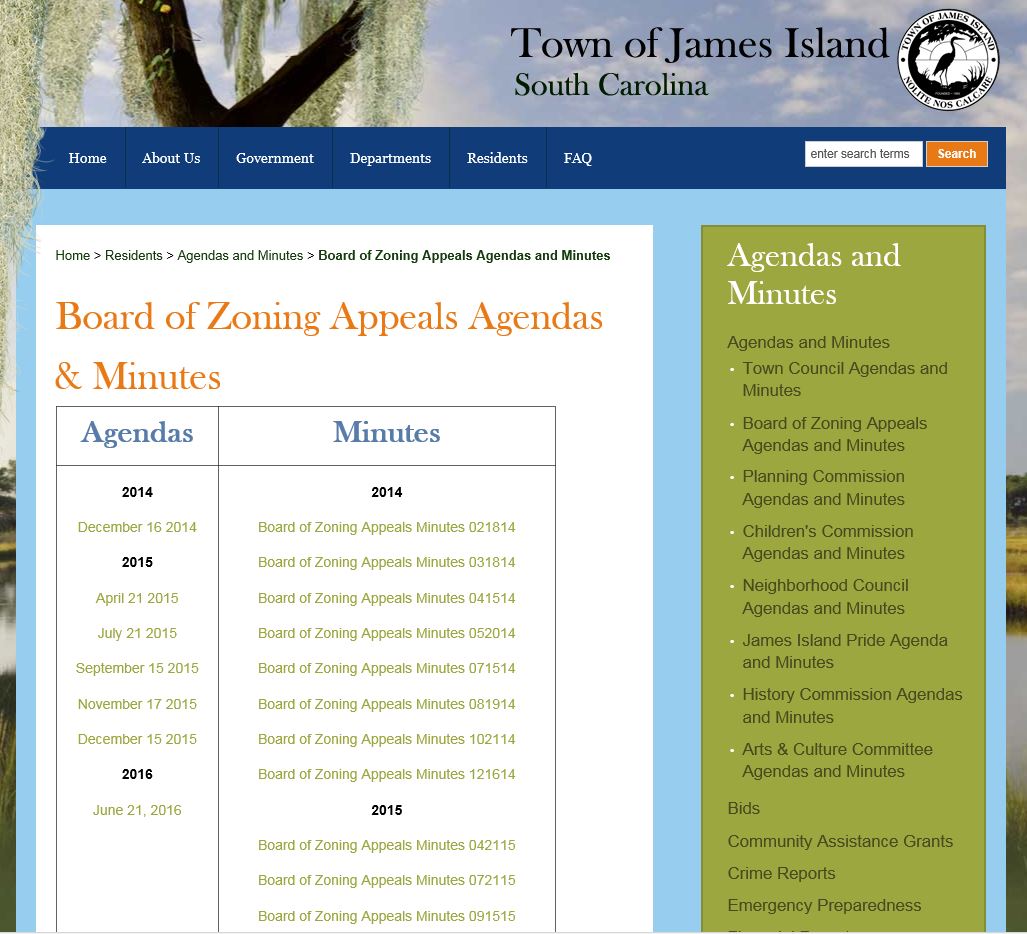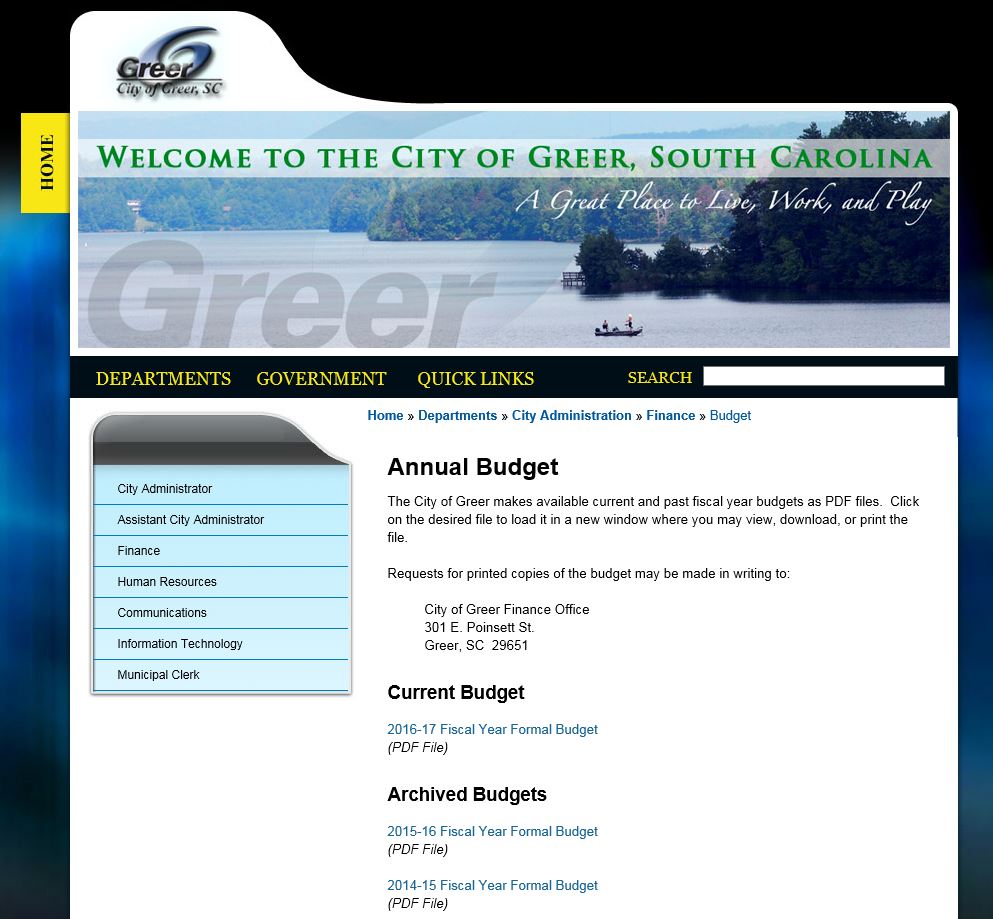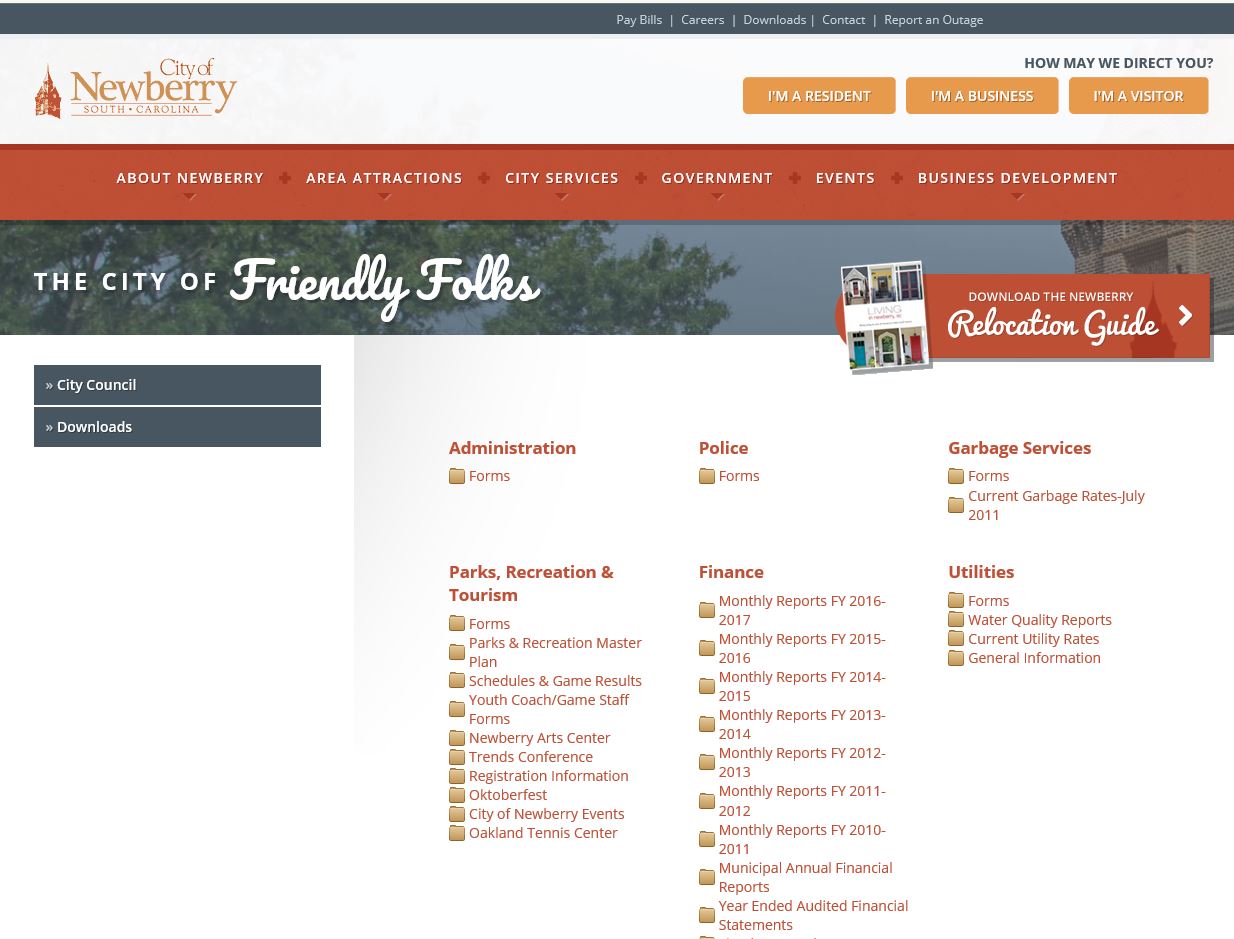Taking the time and effort to post city documents online can yield greater trust from residents, a better informed community and fewer document searches for city staff to perform.
In the Town of James Island, staff members post extensive records on the town website, including various boards' agendas and meeting minutes for the town's beautification and litter-control board.
"We have 10 employees, so it cuts down on phone calls and work for us," Town Administrator Ashley Kellahan said. "It's a benefit for the public but also to our efficiency in-house."

When the town embarked on its Pinckney Park design and construction project, officials posted the bid invitation so that anyone could view it, not just the bidders. They also posted the short list of architecture firms that would be interviewed for the town hall project, along with the ultimate winner. Kellahan said any work products from the firms, however, would not be posted due to proprietary constraints.
Public process, public record
The town also showed how posting public records reinforces resident engagement in the community decision-making process. James Island leaders ranked future park amenities and qualities using a "dotmocracy" method, specifically asking residents to offer suggestions and then to assign color-coded dots to them, which correlated to points. Residents graded individual suggestions by giving it the dot that reflected their level of interest in it.
A grid listing about 50 park suggestions in order of dot-based rank — a special events stage, a canoe and kayak launch, and "marsh left alone" ranked the highest — is posted to the James Island website with an explanation of the process. This not only allowed residents to express their priorities but also to create a public record to document the results.
The town doesn't post only positive information. Its website also provides detailed crime reports ranging from gunfire incidents to something as small as a shoplifted fountain drink. Neighborhood council leaders disseminate the crime reports on their neighborhood email lists.
"They are very interested in these crime reports," Kellahan said.
In the City of Greer, city staff has been posting an array of financial reports, including budgets, audits and monthly operational reports on the city website since 2002. In 2010, the city added an interactive dashboard as the next step in its evolution of providing information to residents.
"We wanted to provide an efficient, concise method for our residents to get information on how the city was spending its resources without having to dig through pages and pages of reports, and the interactive dashboard was a great tool to provide that access to information," said Greer Chief Financial Officer David Seifert.

The city receives approximately 100 hits per month on the financial pages of its website.
"Of course, providing information to our community and residents is part of our responsibility, but the openness and transparency, not just to our financial records, but to everything that we do, is part of our culture," he added. "It is important to us to demonstrate the stewardship of the resources that our community provides the city. To that end, we are consistently rated very highly by our residents for providing value for the resources provided by the city."
Part of the culture
In addition to posting water quality reports and other materials, the City of Newberry posts monthly financial reports that detail current revenues and expenditures, compared to what they were one year earlier.
"When I entered the local government field, 'transparent government' was a buzzword that had been floating around for quite some time," said City Manager Matt DeWitt.
"I have been fortunate enough to be able to continue these practices in keeping our residents informed as to how we are managing their tax dollars."

Like Newberry, the City of Greer maintains a long standing commitment to posting public records.
"Our records have been online for 15 years, and having that information available online has become part of our community's culture," said Seifert.
"We regularly refer people to our website for information through press releases, announcements, council and other meetings, and various reports and marketing materials. We want our residents to have as much information as they are able, and to know how to retrieve it."
In James Island, the same holds true.
"We don't get a lot of FOIA requests," said Kellahan. "And I hope that's because we do have so much information online."

